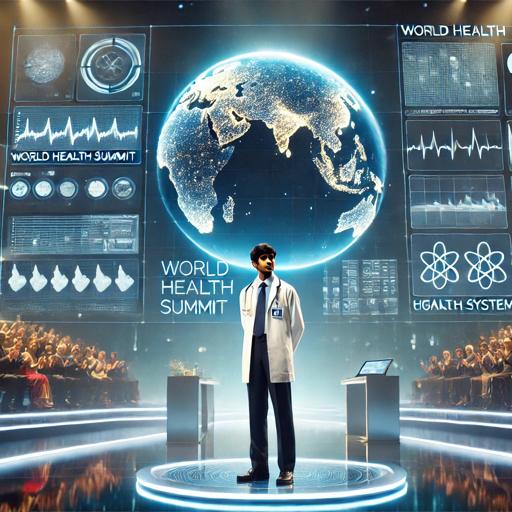Ravi Satyan, a computer engineer from a small village in southern India, stared at the holographic screens floating before him. The lines of code reflected in his glasses were more than algorithms—they were memories, promises, and hope.
When he was eight, cancer took both his parents within months of each other. Back then, the rural clinic lacked doctors, and the closest hospital was hundreds of kilometers away. He had been too young to understand chemotherapy, but old enough to feel helpless as the machines beeped their final farewells.
Decades later, that helplessness had become his fire.
Ravi designed Arogya AI, a revolutionary healthcare system powered by deep learning and predictive analysis. It could detect illnesses like cancer before symptoms even appeared, provide personalized treatment plans, and manage resources to ensure even the most remote areas had access to care.
“Arogya means ‘health’ in Sanskrit,” he’d told the global medical board when presenting his prototype. “This is not just software—it’s a promise that no child will lose their parents because they couldn’t get help in time.”
The system was deployed globally within months. Drones delivered medicines to mountain villages. Smart nanobots repaired tissues at the cellular level. Patients connected to AI doctors through augmented reality consultations, receiving accurate diagnoses in minutes. The system never tired, never judged, never overlooked.
On the ten-year anniversary of Arogya AI, Ravi stood on the stage at the World Health Summit. Behind him, a live hologram displayed real-time statistics: billions of lives saved, countless diseases prevented, and global life expectancy at an all-time high.
“This isn’t just my achievement,” Ravi said. “It’s my parents’ legacy. In every line of code, I imagined what could’ve saved them. And now, their story is saving the world.”
As the applause thundered, Ravi looked up, imagining his parents smiling down at him, their love woven into every pixel of his creation.
And for the first time in years, Ravi felt the ache in his heart ease—just a little.
